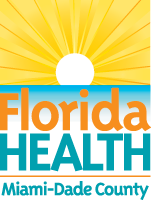Achieving Health Equity In Miami-Dade County: A Look At Tobacco Use Disaparities
April 05, 2018
Miami, Fla. –The Florida Department of Health’s Tobacco Free Florida program and Florida Department of Health in Miami-Dade County are launching a new initiative during the annual Tobacco Free Florida Week, taking place April 2 – 8. The theme, Achieving Health Equity, raises awareness of tobacco-related health disparities throughout the state.
More than 2.5 million adults in Florida are current cigarette smokers.[i],[ii] In Miami-Dade , 14 percent of adults are current cigarette smokers,[iii] which is lower than the statewide average of 15.5 percent.[iv]The health burden of tobacco use remains especially high among racial and ethnic minorities, low-income individuals, the LGBT community and those with mental health conditions.[v] Significant progress has been made in lowering tobacco use, but addressing these disproportionately affected groups still using tobacco at higher rates is a top priority.
“Tobacco use is still the number one preventable cause of death in the nation especially among low income and minority populations” said Dr. Lillian Rivera, RN, MSN, PhD, Health Officer/Administrator of the Florida Department of Health in Miami-Dade County. “In collaboration with our state and local partners, we are committed to raising awareness about the harms of tobacco and encouraging residents to use available cessation services to aid in quitting tobacco use through outreach and educational events.”
For years, tobacco companies have spent billions of dollars each year to market their products that appeal to more vulnerable and less fortunate populations.[vi],[vii] Smoking remains the leading cause of preventable death in Florida and the United States.[viii] Health communications, community and cessation interventions and youth prevention efforts are still needed to discourage tobacco use initiation and counter social norms among subpopulations affected by tobacco-related disparities.
Residents in Miami-Dade can access Tobacco Free Florida’s Quit Your Way program for free tools and services to help them quit. More than 188,000 Floridians have successfully quit tobacco using one of these free services. For more information, please visit tobaccofreeflorida.com/quityourway.
About Tobacco Free Florida Week
The tenth annual Tobacco Free Florida Week takes place from April 2 – 8. Join the conversation on social media using #FLHealthEquity.
[i] 16,469,339 Florida adults: Florida QuickStats. U.S. Census Bureau. U.S. Department of Commerce https://www.census.gov/quickfacts/fact/table/FL/AGE115210#viewtop
[ii] 15.5 percent (or 2,552,747) Florida adults smoke were current cigarettes: Centers for Disease Control and Prevention (CDC). Behavioral Risk Factor Surveillance System Prevalence and Trends Data, 2016. Atlanta: U.S. Department of Health and Human Services, Centers for Disease Control and Prevention, National Center for Chronic Disease Prevention and Health Promotion, Office on Smoking and Health.
[iii] University of Wisconsin Population Health Institute. County Health Rankings 2018.
[iv] Centers for Disease Control and Prevention (CDC). Behavioral Risk Factor Surveillance System Survey Data, Atlanta, Georgia: U.S. Department of Health and Human Services, Centers for Disease Control and Prevention, 2016.
[v] Centers for Disease Control and Prevention. Best Practices User Guide: Health Equity in Tobacco Prevention and Control. Atlanta: U.S. Department of Health and Human Services, Centers for Disease Control and Prevention, National Center for Chronic Disease Prevention and Health Promotion, Office on Smoking and Health, 2015.
[vi] US Department of Health and Human Services. Tobacco Use Among U.S. Racial/Ethnic Minority Groups—African Americans, American Indians and Alaska Natives, Asian Americans and Pacific Islanders, and Hispanics. A Report of the Surgeon General. Atlanta, GA: US Dept of Health and Human Services, Centers for Disease Control and Prevention, National Center for Chronic Disease Prevention and Health Promotion, Office on Smoking and Health; 1998.
[vii] US Department of Health and Human Services. Preventing Tobacco Use Among Youth and Young Adults: A Report of the
Surgeon General. Atlanta, GA: US Dept of Health and Human Services, Centers for Disease Control and Prevention, National
Center for Chronic Disease Prevention and Health Promotion, Office on Smoking and Health; 2012.
[viii] U.S. Department of Health and Human Services. The Health Consequences of Smoking: 50 Years of Progress. A Report of the Surgeon General. Atlanta, GA: U.S. Department of Health and Human Services, Centers for Disease Control and Prevention, National Center for Chronic Disease Prevention and Health Promotion, Office on Smoking and Health, 2014.





Connect with DOH